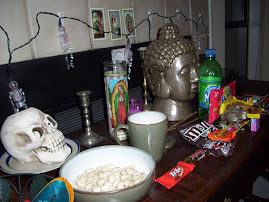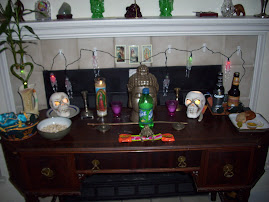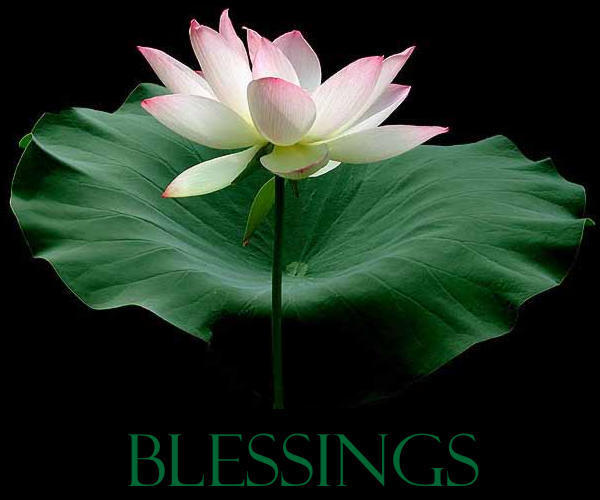Monday, October 6, 2008
Japan revisited
When asked to give my take on Japanese culture I think of both modern and traditional aspects. I think modern Japanese culture is very Westernized, maybe even more than in China. I know that the Japanese really emphasize scholastic achievement, as they do in China, and the children are extremely applied and hard working. Martial arts training is integral to the culture, with many different art forms--Aikido, Karate, Kempo, all stemming from ancient roots. I have a son who studied Karate before Taekowndao ( Korean Martial Art) and I can tell you there is much formality in the dojo (Japanese for classroom). When Shogun (starring Richard Chamberlin) came out in the late 70's I was in 6th grade doing a report for social studies on Japan. I wish we were watching this film for this class too, but from what I remember, it depicted the masculine and feminine sides of Japanese culture pretty clearly, as does the Last Samurai. Also, in both films there is a Samurai adoptee, a white man learning and embodying the Samurai code. I think of both these films as good martial arts training, by observing the quickness and agility that the training, both physical and mental, accomplishes when both characters are faced with adversity. Inherent in both men is how their spiritual growth occurs along with the embracing of the customs and ways of the Japanese. Honor and a Zen like mind are more important than anything else. I remember as a kid always being facinated with the beautiful Kimonos, especially worn by the Geishas ( artists). I love the cherry blossoms, and bonsai. Traditional Japanese culture is so Zen, and infiltrates all aspects of life, from gardening to fighting. To be good with the ink in calligraphy (Kanji) is to be good with the sword--its all in the wrist. I know this concept is similar to ancient Chinese culture, from my study of Chinese marital arts and yoga. I also think of the Japanese healing art, Reiki, which is similar to Chinese Qigong, both of which I have studied and use in my therapeutic practice. As part of my second degree Reiki training, I had to learn to write a few characters in Kanji which was really cool. Overall, honor, grace, dedication, and discipline are so deeply ingrained in Japanese people even today. Even daily tasks like taking tea--for example, the Japanese Tea Ceremony are made special in a very formal and artful way. I am looking forward to enhancing my understanding and experience of Japanese culture by exploring Japanese theatre, which I have not yet had the chance yet. I do recall being at Arigatos for dinner one night with my friends looking at the array of masks doning the wall in the sushi bar area. We were all asking each other, "Which one reminds you of me?" Most of them made me laugh because they had many diferent expressions, from angry to dumbfounded. I guess what makes me laugh the most is facial expressions and gestures that people have. Its not enough just to hear someone's voice--the face must convey more than the voice. A picture always paints a thousand words more clearly. I love making silly goofy faces with my son Ian. Its what makes us both laugh hysterically to the point our bellies ache!
Subscribe to:
Post Comments (Atom)











8 comments:
Hi Laura! You express so well the underpinnings of Japanese thought and culture with,"Traditional Japanese culture is so Zen, and infiltrates all aspects of life, from gardening to fighting." and..."Overall, honor, grace, dedication, and discipline are so deeply ingrained in Japanese people even today."
A deep philosophical coursing runs throughout the lives of most Japanese that I think our primarily current postmodern on-the-surface American culture could stand to learn a bit more from...
And that's really neat about writing characters in Kanji as a part of your Reiki training.
So much of enacting excellence within life is a preparation of the mind in focus and intent. Good stuff!
Enjoyed your post, best, Lachlan
Hey Lachlan,
thank you for your comment. glad you enjoyed the post. being a student of martial arts and reiki has really helped me develop a zen approach to life. its one that will take a lifetime to master, being raised in western civ!
Laura
Hi Laura. I agree with you, it seem we all have a vast array of consideration when we think of Japan, unlike some other countries that seem to cause us to fixate on one particular timeframe.
Kevin
I, too, appreciate the philosophical depth of Japanese culture, particularly the deep reflection that seems to be so much a part of it. In comparison, especially during election cycles, our own culture seems vastly non-reflective, simple-minded, and, well, stupid in many ways... I mean, Joe the plumber? Is there a counterpart for that in Japanese political discourse?
Hey, LL,
No I don't think there is a counterpart to the cheesy joe the plummer stuff-- how base and lacking in anything substantial is that? I laughed at the audacity of that one! At least we are lucky enough to have a more expanded awareness than that.
Laura
HI Laura! Neat Horse Stance illustration- thanks for doing that for us, cool.
Best, Lachlan
Purchasing utilized can spare you a great deal of money. Vehicles for instance, lose up to 20% of their price tag, just by leaving all necessary signatures and driving off the parcel in it. Let another person pay for that deterioration by buying a vehicle that is two or three years of age. You will at present have a low mileage warrantied vehicle, however without the hit to your value.
play bazaar
satta king
play bajar
When setting up a blog the most fundamental component is recognizing the motivation behind the blog. Would you like to post your exploratory writing? Or then again, perhaps you need to blog as a method for taking a stand in opposition to a subject that intrigues you. Advancement of a business is another regular motivation to blog. Realizing your motivation will enable you to choose what sort of blog to set up and will uncover the crowd you are planning to catch. Both, are basic components of a decent blog.
play bazaar
satta king
satta result
Post a Comment